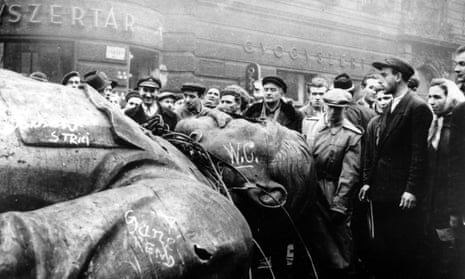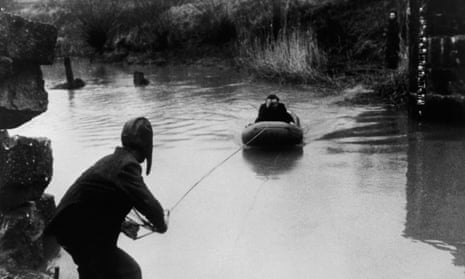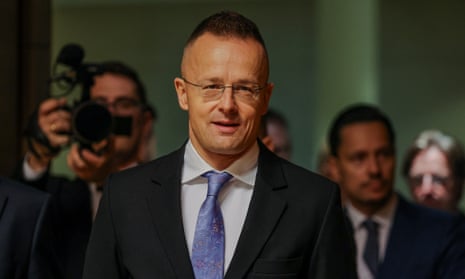Good morning and welcome back to the Europe blog.
We will be looking at the latest in Hungary, which today is marking the anniversary of the 1956 revolution, which was crushed by Soviet troops.
The anniversary comes at a tense time for Hungarian foreign policy, days after prime minister Viktor Orbán controversially met with Russian president Vladimir Putin and as the Hungarian government is working to seal a deal to unfreeze billions in EU funds that were suspended over rule-of-law concerns.
Orbán will be marking the anniversary with a speech this afternoon, while Budapest mayor Gergely Karácsony is set to address a crowd in the capital in the evening.
Members of the European parliament, meanwhile, are expected to hold a press conference in Brussels looking into Hungary’s recent reform attempts and whether the country has really made sufficient progress on democratic standards to access European funding.
Send comments to lili.bayer@theguardian.com.
Members of Momentum, a centrist opposition party, threw red paint this morning outside Hungarian prime minister Viktor Orbán’s office as a protest against his relationship with the Kremlin.
Orbán “betrayed” the memory of the heroes of 1956, Momentum wrote.


Daniel Berg, vice president of the Alliance of Liberals and Democrats for Europe and deputy mayor of Budapest’s second district, has criticised the Hungarian government’s foreign policy.
“The spirit of ‘56 is sadly more alive today in Kyiv than in Budapest,” he told the Guardian this morning.
“Viktor Orbán kowtowing to dictators like [Vladimir] Putin and Xi Jinping, undermining Ukraine and NATO, and drifting ever farther from the West is a disgrace to the memory of Hungarian freedom fighters, and counter to all they fought, bled and died for.”
Here are photos from 1956. Today Hungary is marking the anniversary of its uprising, which was crushed by Soviet troops.



Hungary’s Péter Szijjártó arrived for a meeting of EU foreign ministers in Luxembourg this morning pumped for arguments with European partners.
Szijjártó is known as Europe’s most Russia-friendly minister, and is one of the only senior figures within the EU who still travels to Moscow.
“Europe is surrounded by wars and conflicts,” the minister wrote on social media, noting that Israel, Ukraine, Nagorno-Karabakh and the Sahel are on the agenda.
While most EU ministers like to stress the bloc’s unity on key foreign policy issues, Szijjártó often underscores differences in opinion.
“Divided positions and big debates,” he said of today’s session.

Good morning and welcome back to the Europe blog.
We will be looking at the latest in Hungary, which today is marking the anniversary of the 1956 revolution, which was crushed by Soviet troops.
The anniversary comes at a tense time for Hungarian foreign policy, days after prime minister Viktor Orbán controversially met with Russian president Vladimir Putin and as the Hungarian government is working to seal a deal to unfreeze billions in EU funds that were suspended over rule-of-law concerns.
Orbán will be marking the anniversary with a speech this afternoon, while Budapest mayor Gergely Karácsony is set to address a crowd in the capital in the evening.
Members of the European parliament, meanwhile, are expected to hold a press conference in Brussels looking into Hungary’s recent reform attempts and whether the country has really made sufficient progress on democratic standards to access European funding.
Send comments to lili.bayer@theguardian.com.